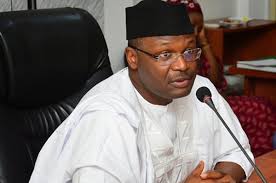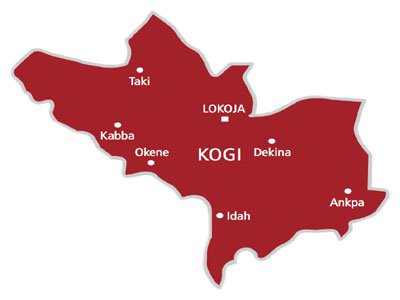Editorial
Of the Nigerian Communications Commission’s leadership in Africa’s digital ecosystem

Modern economies are driven by vibrant communication apparatus aimed at creating cohesion among component parts of the micro and macro economy.

The Fourth Industrial Revolution (4IR)—characterized by the fusion of the digital, biological, and physical worlds, as well as the growing utilization of new technologies such GSM communication, artificial intelligence, cloud computing, robotics, 3D printing, the Internet, and advanced wireless technologies, among others—has ushered in a new era of economic disruption with uncertain socio-economic consequences for the country and the continent.

Nigeria, and by a wider range, growing economies, have without a doubt cashed-in on this opportunity with the Nigerian Communications Commission (NCC) consolidating on improvements in the country’s ICT sector which have been largely driven by an expanding mobile ecosystem.
In recent years, the ICT sector, enabled by the mobile telephone revolution in Nigeria has continued to grow, a trend that is likely to continue.
Of late, mobile technologies and services have generated 1.7 million direct jobs (both formal and informal), contributed to $144 billion of economic value (8.5 percent of the GDP of sub-Saharan Africa), and contributed $15.6 billion to the public sector through taxation.
Digitization has also resolved information asymmetry problems in the financial system and labor market, thus increasing efficiency, certainty, and security in an environment where information flow is critical for economic growth and job creation.
Thursday March 31, 2022, until the recent creation of the agency for Digital economy, the Nigerian Communications Commission (NCC) was the backbone of digital interfaces in the country, even after the federal government established the above organ, the NCC has continued to provide independent national regulation for the telecommunications industry in the country.
The Commission is responsible for creating an enabling environment for competition among operators in the industry. An undertaking that has earned it the reputation as a foremost Telecom regulatory agency in Africa.
This is even as it ensures the provision of qualitative and efficient telecommunications services throughout the country.
The Commission in its efforts to catalyze the use of ICTs for different aspect of national development, initiated several programs such as State Accelerated Broadband Initiative (SABI) and Wire Nigeria Project (WIN) to help stimulate demand and accelerate the uptake of ICT tools and services necessary for the enthronement of a knowledge society in Nigeria.
To achieve this, the NCC put in place several licensing and regulatory framework for the supply of telecommunications services, and to support a market driven Communications industry and promote universal access.
This framework not only covers a dynamic regulatory environment that ensures universal access to affordable and equitable services, it also supports the nation’s economic growth.
Our Guiding Principles
It is important to point out that commission’s six core value components is a fulcrum driven by Fairness, Firmness and Forthrightness.
These core values are:
Integrity
Excellence
Professionalism
Responsiveness
Innovation
Commitment
It is essential that Nigeria, with her huge market potentials, is properly guided to ensure the interests of telecoms consumers in the country are well-protected.
In this regard, the Commission must continue to broaden the playing field by issuing more telecom licenses to industry players so as to further enshrine an atmosphere of increased consumer choices and satisfaction.
And like the Minister of Communications and Digital Economy, Prof Isa Pantami, recently said, at the inauguration of Bindawa as Non-Executive Commissioner of NCC’s Governing Board in Abuja, “It is because of this I do hope that you will be another good addition that will support, consolidate NCC’s achievement and also make sure that we have people with diverse experiences to be able to work together, support each other towards the success of the commission. I want to use this opportunity to remind the board of its responsibility, prior to the inauguration of the new member. The main responsibility is to ensure consumer protection.”
As the country joins the rest of the world in the upscaling race to 5G connectivity, there is need for cost-efficient network expansion to ensure optimal support for this traffic growth, with global mobile data traffic reaching a monthly rate of 56.8 Exabyte in 2021, as compared to 3.7 Exabyte in 2015.

Editorial
As Nigerians are awaiting passage of Nigerian Coast Guard Bill

The Nigerian Coast Guard Bill is a well thought out legislative instrument that would take the nation to the next level of securing its maritime resources like any well organized countries of the world.

The vast marine resources of the nation cannot continue to be left on an ad-hoc system whereby the Nigerian Navy and the Nigerian Maritime Administration and Safety Agency are the agencies administering the marine resources as Nigeria continue to suffer economic hemorrhage and lose billions of naira annually due to illegal exploitation of marine resources.

The establishment of the Nigerian Coast Guard is in consonance with the global best practices and would address a critical gap and enable Nigeria to fully leverage its maritime potential. The United Kingdom, India, United States of America, Australia, Canada and others, have long robust history of how Coast Guards changed positively the narrative of managing marine resources, hence, Nigeria need to wise up to join the community of well structured Coast Guard nations to its advantage.
The establishment of a coast guard aligns well with the recommendations of the International Maritime Organization, IMO, the United Nations agency dedicated to maritime affairs. The IMO guidelines highlight the necessity of having a dedicated maritime security agency responsible for implementing international standards for maritime safety and security.
On 5th December, 2024 during a public hearing on the now pending bill to “Establish Nigerian Coast Guard”, it was unfortunate that the Nigerian Navy could degenerate to selfishness by opposing the establishment of the Nigerian Coast Guard despite overwhelming advantages presented by experts in maritime industry like Dr. Olisa Agbakoba and numerous other stakeholders.
From the public hearing, it became clearer that the mandate of the proposed Nigerian Coast Guard and the statutory duty of the Nigerian Navy cannot in any way crisscross, as Navy’s duty is that of combat and defence, while the Nigerian Coast Guard is that of managing marine resources and prevention of illegal exploitation of the resources.
Objecting the bill, the Chief of Naval Staff, Vice Admiral Emmanuel Ogalla through his representative contended that there was no need for the establishment of the Nigerian Coast Guard, which the Nigerian Navy has been discharging for the past 40 years.
While we lend our strong advocacy to the establishment of Nigeria Coast Guard, integrating the Navy into the Coast Guard structure remains a viable option, like practices used by other countries. This arrangement would enable the Navy to lend its specialized skills and resources to support the Coast Guard’s operations, when needed while preserving the Coast Guard’s overall civilian mandate and organizational independence.
We urge the 10th National Assembly under the leadership of Senator Godswill Obot Akpabio to pass this very important bill into law as Nigerian Coast Guard would effectively address various maritime issues, with its primary responsibilities to include implementing maritime regulations, protecting Nigeria’s extensive economic resources, and enforcing the nation’s maritime laws, such as the Cabotage Act and the Merchant Shipping Act.
This specialized focus would enhance the enforcement of regulations, increase revenue generation, and improve the protection of Nigeria’s marine environment.

Editorial
INEC’s disturbing request for N126 billion 2025 budget

One could recall the many failures and total imperfections in elections conducted that snowballed into total conundrum of the nation’s democracy when the Chairman of the Independent National Electoral Commission, Prof. Mahmood Yakubu appeared before the Senate and House of Representatives joint Committee on INEC on 5th January to defend INEC’s 2025 budget defence.

Mahmood who was appointed by the former President Muhammadu Buhari on 21st October, 2015 has never added value to the nation’s electoral process in barely ten years, hence, the conduct of elections under his watch has always been fiasco, confusion and utter disappointment to the political players and Nigerians who have long yearned for perfect elections.

Undoubtedly, perfect election has the potential to strengthen democracy, restore confidence and throw up well-meaning Nigerians to make themselves available to contest elections in the interest of development of the nation, but as it were, INEC under Yakubu remains a nightmare to politicians and not even their political rivals during elections.
It’s no gainsaying that humongous fund has been pumped into INEC through appropriation by the National Assembly in anticipation that if funds were judiciously utilized under the items listed, in previous years, electoral processes would have been sanitized much more to the advantage of electoral players, but it’s being a sad story from year to year.
When the Bimodal Voter Accreditation System and Permanent Voters Card were introduced by the INEC, with request for sufficient funding, Nigerians were upbeat and in expectation of a new way of conducting election in consonance with the best global practices, but with huge funds committed to the initiative, there are no good testimonies till date.
The very essence of BVAS ended in conduit pipe, the same way funds committed to it under Mahmood ended. The machine which was touted to be a device which would be used to isolate fake votes from genuine ones has never been so. A development that results of one Local Government has surpassed the entire 20 Local Government Council Areas for two electioneering times under the watch of Yakubu.
From State to State during general election, there were cases of INEC staff compromising election processes without subjecting them to in-house disciplinary action. Painfully, these staff of the electoral umpire walk around free and even go to court to defend the cases.
One wonders the questionable election results each year and how INEC’s agents would defend them as principal witness when the said results became subject of litigations. We believe that the 21st century digital age should have enhanced activities of the electoral umpire and not the other way we are seeing. Conducting election in Nigeria is not a rocket science, hence, decrying complications in conducting election in Nigeria as we saw during the budget defence last week by the INEC boss was completely an attempt to confuse the lawmakers.
The increase of INEC’s budget from N40 billion to N126 billion currently before the National Assembly for legislative action is too staggering, humongous and would be a waste if this fund is approved under the leadership of Godswill Obot Akpabio as Senate President.
The 10th National Assembly, it is believed, has wise men and women in Senate and the House of Representatives and Nigerians are counting on them to save the nation of waste of hard earned resources by not approving the sum of N126 billion for INEC. This is at the backdrop of the fact that nothing good could come out of INEC under the current structure.
Also, it will be an honour done to themselves as patriotic Nigerians and elder statesmen to decline approval of N126 billion proposal, even as items raised by the INEC boss for the proposal are not only feeble, there are also unrealistic.
The parliament should be seen to be doing all it could to curb financial leakages and retaining the N40 billion budget since 2025 is not the general election year would be appropriate. This will avoid the surge of INEC’s proposal to a trillion naira in 2027 general election if the current proposal of N126 is sustained.

Editorial
The rise and rise of ‘yahoo boys’ and their activities in Kogi!

If nothing is done to curb the menace of ‘yahoo boys’ immediately, Kogi State is about being the biggest hub of yahoo boys, given their activities and the large number of boys involved. These boys have relocated to Lokoja, Kogi State capital and are living a larger than life.

They are proudly cruising around town in very expensive vehicles worth over N50 million like lexus, venza and other brand of prado jeeps and are competing with themselves. Most of them ranging from age 19 to 35, could be seen wearing ear rings with dreadlock hairs.

In Kogi State, every property owner like buildings particularly in Lokoja want to have a yahoo boy tenant as they have resources to rent without bargaining the cost. Most of them lodge in expensive hotels, while others still in school rent costly apartments in Lokoja. They have good network among themselves, i.e yahoo boys in the Prince Abubakar Audu University, Anyigba know their group in Confluence University of Science and Technology and in other tertiary institutions which is easy for the group to flock together.
Civil servants can no longer afford to pay rents as rent has gone beyond the normal ceiling because of ‘easy money’ in hands of yahoo boys which they throw around. Notwithstanding, some reasonable yahoo boys have resorted to buying properties with the money which is believed among them that they don’t deal with cash as such, but transfers.
Yahoo boys in Kogi patronises herbalists and possesses voodoo laced with human blood used as ritual or dug from a graveyard at night which they believed hynotises their victims to part away money into their account and that is what has been their modus operandi.
If any of their member loses loved one, celebrating marriage or any kind of event, they are always there either in pure white or black attire to spray money.
In fact, Kogi is in gridlock of yahoo boys! And we demand a serious clamp down, security agencies should see Kogi as another challenge and not just the Economic and Financial Crimes Commission operatives. As the number of yahoo boys is multiplying so is the consequence on the society as their activities may likely snowballed into serious insecurity.
It is no exaggeration to say that the agony of losing money in bank accounts would be a child play, but money in hands very young boys could create another arms bearing gang posing security threat to the society as some desperate politicians could hijack them.
We call on the Inspector General of Police to create anti-yahoo unit in the Nigerian Police to tackle this ever spreading menace. A stitch in time saves nigh!

-

 Foreign1 week ago
Foreign1 week agoHouthis declare Ben-Gurion Airport ‘no longer safe’ after renewed Gaza fighting
-

 News1 week ago
News1 week agoWhy Christ Embassy’s Pastor Chris holds Abuja mega crusade – Fisho
-

 Security2 days ago
Security2 days agoNew Commissioner of Police in Niger, Elleman sends strong warning to criminals
-

 News2 days ago
News2 days agoKogi Governor, Ahmed Usman Ododo salutes Tinubu at 74
-

 News1 week ago
News1 week agoUmeh denies receiving $10,000 with other 42 Senators to support state of emergency in Rivers
-

 News19 hours ago
News19 hours agoAbia: LG Chairman, Iheke accused of using soldiers to detain IRS agent, claims Governor Otti’s support
-

 News2 days ago
News2 days agoPlateau LP stakeholders endorses Barr Gyang Zi’s defection to APC
-

 Sports1 week ago
Sports1 week ago2026 World Cup Race: Ekong says Eagles feel great to be back in contention




















